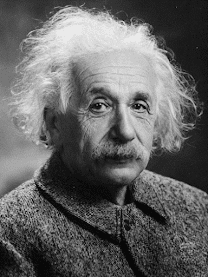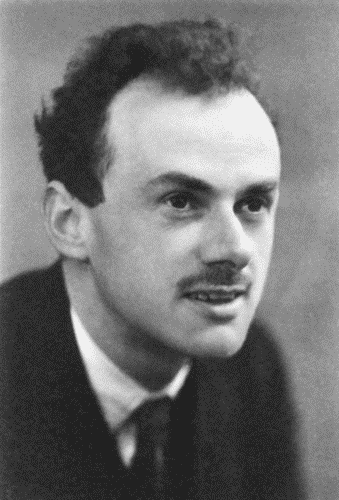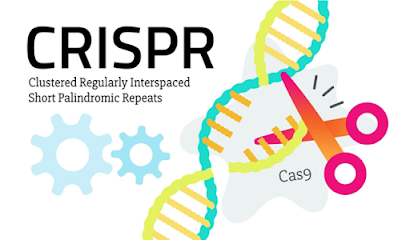Age of Quantum Computing
What if I say that you can do something that you can but something is restricting you to do that. What will you do? It’s obvious that you’ll search for an alternative. This is the same case with our conventional computers. They can go fast but some physical phenomena like Quantum Entanglement and Superposition restricts them to do so. Let’s take a look over history.
History:-
The phenomenon of Quantum Entanglement was first discussed by Physicist Prof.Albert Einstein in his 1935’s research paper along with Prof. Boris Podolsky and Prof. Nathan Rosen. This effect comes into play when we talk about quantum (very small) objects. Along with this the phenomenon of Superposition is observed at such level which was given by Physicist Prof. Paul Dirac. While designing the initial architecture for computers, these phenomena were something to be considered.
Prof. Albert Einstein
Prof. Paul Dirac
Why we need quantum computers?
It all began with the vacuum tubes in 1964 when it was unveiled at New York’s World Fair. After that the transistors came. Transistors are an essential building block used in almost every electronic device. Thousands of them can be crammed into a single smartphone or laptop, which means that even seemingly minor differences in their size can have a major impact on the device as a whole.
While there have been other innovations allowing processors to compute quicker (e.g.,GaAs wafers), making transistors smaller has been one of the most important factors in increasing a computer’s speed. The first transistor was 125 microns in size and today we’re at a stage when a single transistor is of 5-10 nanometres in size. We can also see 3nm chips in production.
Here’s the graph of transistor count over the years. We can see that the transistor count doubles every two years. This growth is exponential. How far it’ll go? As we’re approaching to small sizes, one day we’ll reach to the dimensions of a single atom. At such level the subatomic particles behaves differently and doesn’t gives result as before. That’s why we need Quantum Computing for further progress. This is the new technological revolution.
Why Quantum Computers are faster?
As quantum computers don’t use binary values like ones and zeros, they use quantum bits or qubits which transfers the information quantum mechanically. This difference makes them more powerful tool ever.
Let's look at example that shows how quantum computers can succeed where classical computers fail:
A supercomputer might be great at difficult tasks like sorting through a big database of protein sequences. But it will struggle to see the subtle patterns in that data that determine how those proteins behave.Proteins are long strings of amino acids that become useful biological machines when they fold into complex shapes. Figuring out how proteins will fold is a problem with important implications for biology and medicine.
A classical supercomputer might try to fold a protein with brute force, leveraging its many processors to check every possible way of bending the chemical chain before arriving at an answer. But as the protein sequences get longer and more complex, the supercomputer stalls. A chain of 100 amino acids could theoretically fold in any one of many trillions of ways. No computer has the working memory to handle all the possible combinations of individual folds.
Quantum algorithms take a new approach to these sorts of complex problems -- creating multidimensional spaces where the patterns linking individual data points emerge. In the case of a protein folding problem, that pattern might be the combination of folds requiring the least energy to produce. That combination of folds is the solution to the problem.
Quantum Computers are built for complexity:
Conventional computers use bit for it’s mathematical operations whereas quantum computers use qubits (CUE-bits) for performing it’s multidimensional quantum algorithms.
Entanglement is a quantum mechanical effect that correlates the behavior of two separate things. When two qubits are entangled, changes to one qubit directly impact the other. Quantum algorithms leverage those relationships to find solutions to complex problems.
computers. As quantum hardware scales and these algorithms advance, they could tackle protein folding problems too complex for any supercomputer.
Quantum Computers-
IBM Advanced Commercial Quantum System (IBM One)
University of Science and Technology of China’s ‘Jiuzhang 2.0’
Applications:
Communication- Many clud-based services, from our calendar to chat, so are popular apps like Skype and Whatspp, and all empower people to comuunicate and collaborate on a global scale. This is only possible because of Quantum Computing.
Entertainment- Many services and streaming giants like Netflix, Amazon Prime, etc which host enormous databases of movies and TV shows available via cloud. This allows them to exist.
Health Care- Quantum’s capacity to process at scale will permit clinicians to integrate numerous cross-utilitarian data collections into their patient risk factor models. For example, they will have the option to investigate environmental databases to assess the impact of contamination on a patient’s health history.
At last we can say, Quantum computing enables us to take care of complex issues that are past the capacities of traditional computers. From managing money to large datasets, quantum computing’s applications are unending. It is of prime importance in today’s world. As our society grows, we need different innovations to sustain our life. Innovations and technologies like this will be always there sustain life…
References and credits:-
Abhijeet Waghchaure (Team Tech Tuesday)
https://www.ibm.com/topics/quantum-computing
https://towardsdatascience.com/the-need-promise-and-reality-of-quantum-computing-4264ce15c6c0
https://en.wikipedia.org/wiki/Quantum_entanglement
https://builtin.com/hardware/quantum-computing-applications
https://www.offgridweb.com/preparation/infographic-the-growth-of-computer-processing-power/
https://www.waferworld.com/post/how-small-can-transistors-get
https://www.istockanalyst.com/category/tech/
https://fossbytes.com/china-supercomputer-jiuzhang-zuchongzhi/
Book- Computing with Quantum Catss: From Colossus to Qubits- by John Gribbin









Comments
Post a Comment